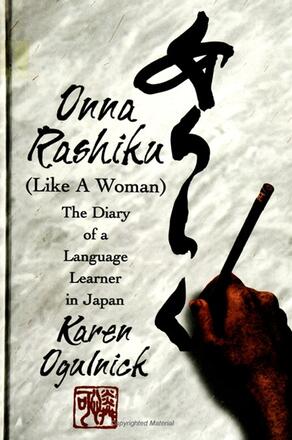
Onna Rashiku (Like A Woman)
The Diary of a Language Learner in Japan
Alternative formats available from:
This original interdisciplinary book combines autobiographical reflections with a scholarly analysis of a diary the author kept while learning Japanese in Hiroshima.
Description
This book bridges theories of feminism and second language acquisition. Karen Ogulnick examines the dialectic between language learning and identity in this original and interdisciplinary book. Combining autobiographical reflections with a scholarly analysis of a diary she kept while learning Japanese in Hiroshima, her book offers rich insight into the complex interplay between gender, race, culture, social class, historical experiences, and language learning.
Karen Ogulnick is Assistant Professor and Director of Programs of Teaching English to Speakers of Other Languages (TESOL) and Bilingual Education at C. W. Post College, Long Island University.
Reviews
"One of the most memorable aspects of Onna Rashiku (Like a Woman) is the power of the writing. I was struck by the openness of the writer, the richness of her details, and the vividness of her descriptions. I was so interested in the writer's experiences that there were times when I literally could not put down the book. Ogulnick does a remarkable job of analyzing her powerful diary entries and uncovering insights about the complex relationships between language learning, gender, culture, and identity. She provides the reader with fresh perceptions and understanding about the impact of Japanese language learning on her own view of herself, her identity as a Jewish woman, and her cultural identity as an American. " — Lynn Becker Haber, Southern Connecticut State University
"Finely observed details make the complexities of the language/culture learning process more vivid here than in any other book I've ever read. It helps to make clear how much is involved in attempting to master a second language, and, particularly to be able to use it in that culture. Properly understood, this book could revolutionize foreign/second language teaching. " — John S. Mayher, New York University